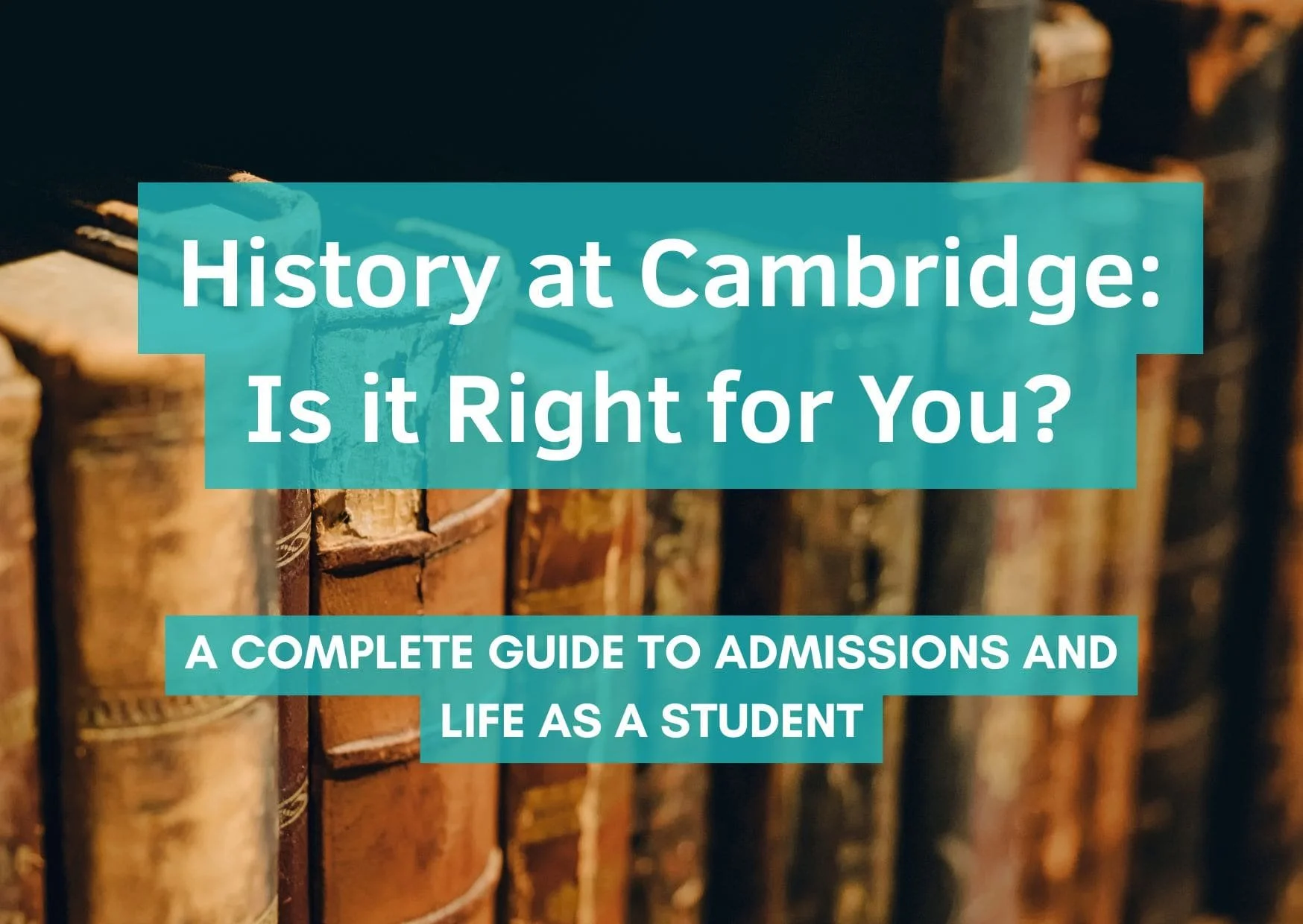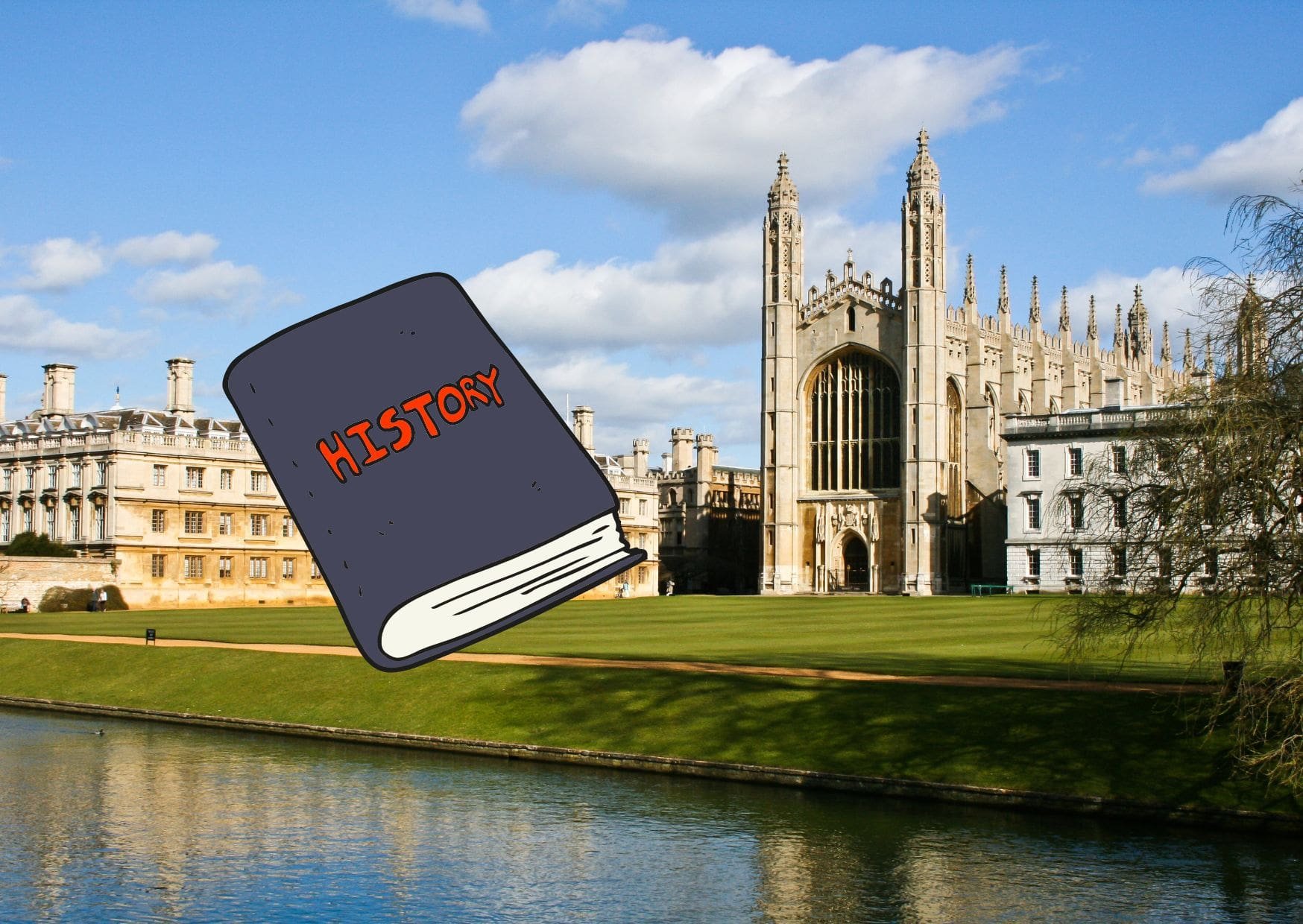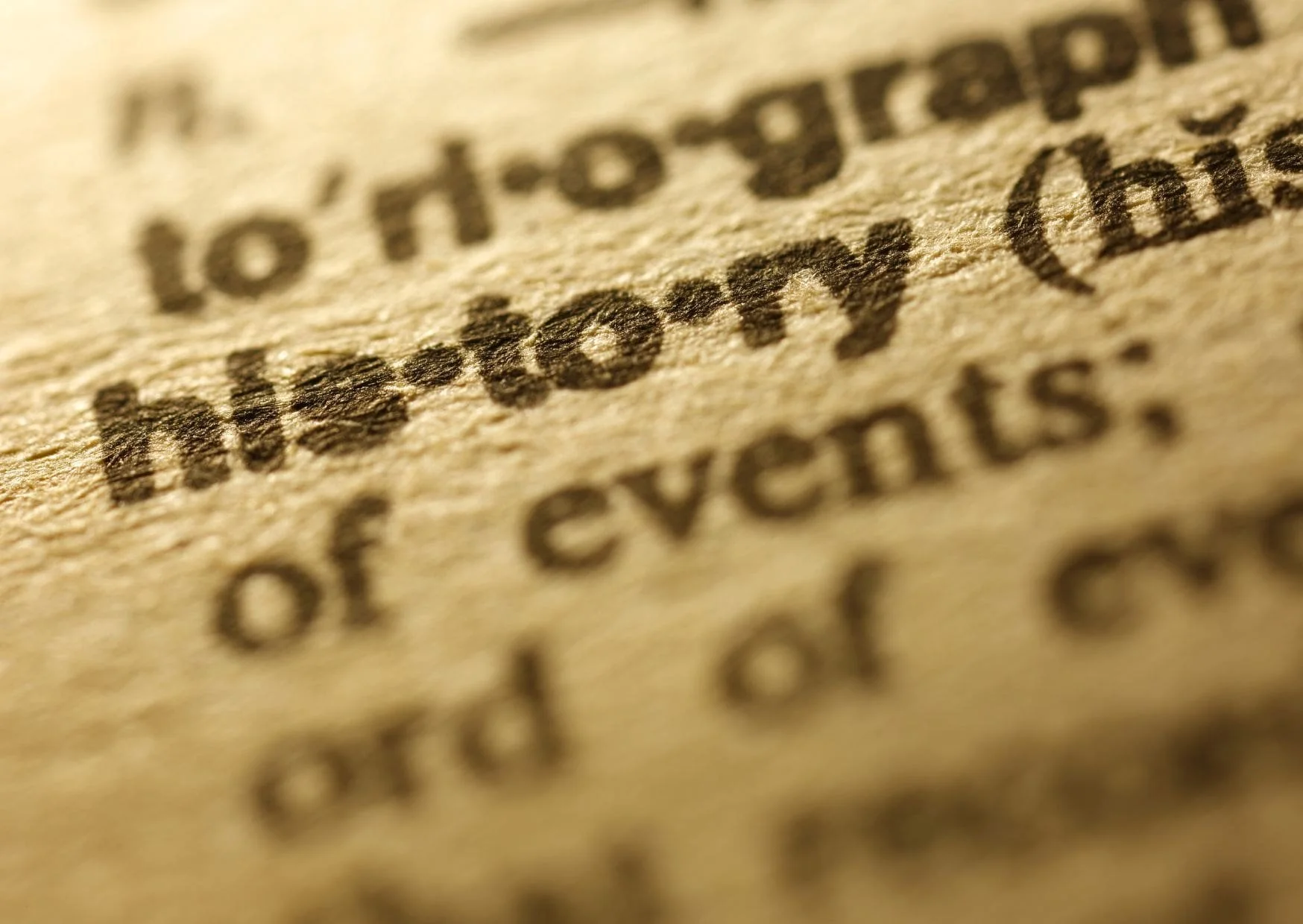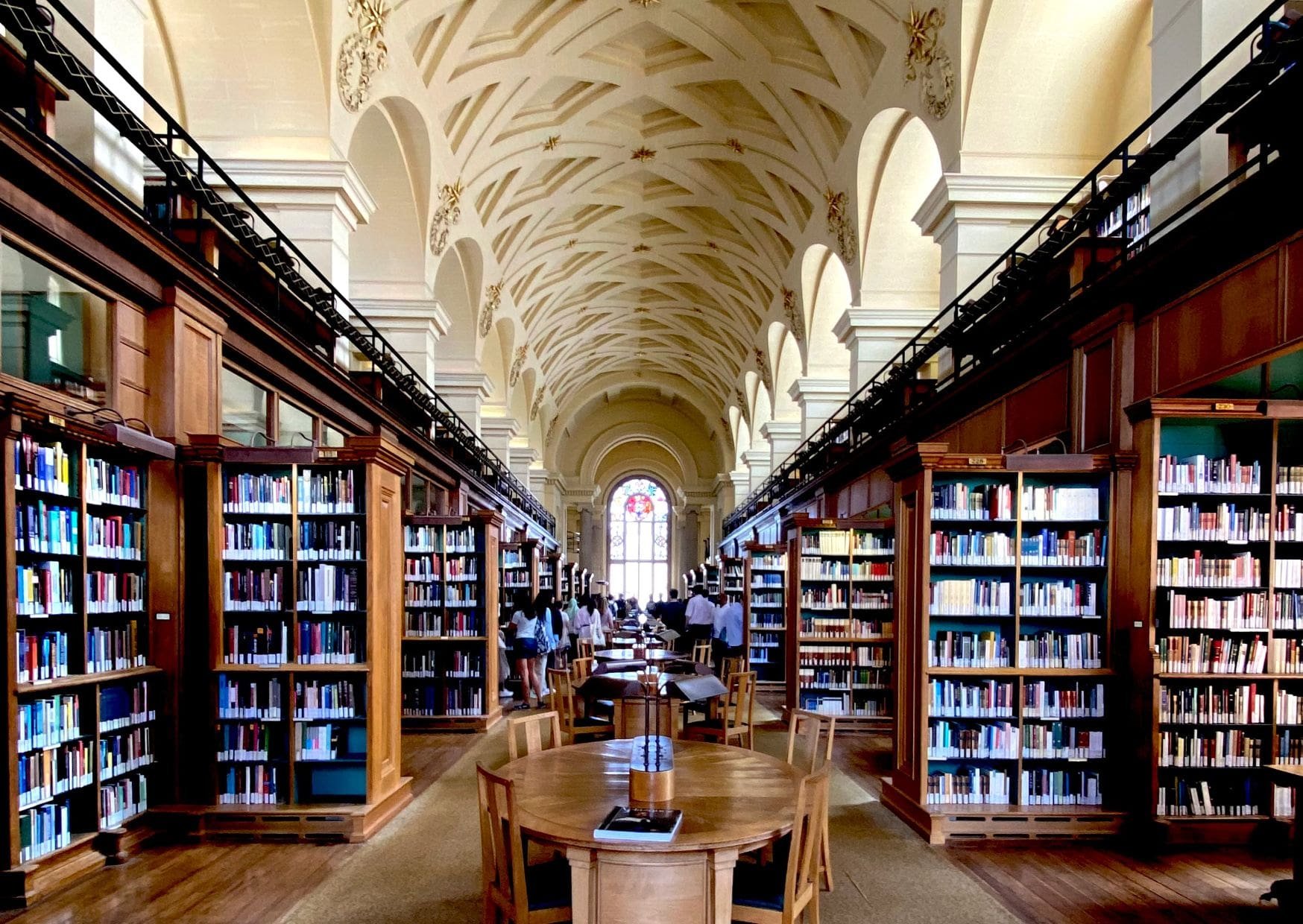History at Cambridge: Is it Right for You? A Complete Guide to Admissions and Life as a Student
When asking yourself, which UK universities are the best for History, Oxford and Cambridge are at the forefront of most students’ minds. This guide and our Oxford History guide break down what it’s like to study History, an exciting course with numerous transferable skills, at two of the UK’s most prestigious universities.
For Cambridge History application help, we’ve broken down the end-to-end process and detailed how we can help at every stage, using our years of expertise and advice from current students. Want to know the best college for History, the most thought-provoking paper options, and the coolest cafes for essay writing? We’ve got you covered.
At U2, we have almost a decade of expert mentoring for Cambridge History applicants, guiding History personal statements, assessments, and interviews, all delivered by first-rate Cambridge graduates. Learn more about the course, the university, and our support.
Blog Contents
Is Cambridge good for History? How do I choose between Oxford and Cambridge for History?
What's the application process, and what’s a Cambridge History Interview really like?
How can I stand out as a history applicant at Cambridge University?
What are the career prospects after studying History at Cambridge?
Is Cambridge good for History? How do I choose between Oxford and Cambridge for History?
Cambridge isn’t just good for History, it’s one of the best places to study it in the UK and worldwide.
The QS 2025 world rankings place it 3rd behind only Harvard and Oxford, whilst the Complete University Guide considers it 1st in the UK.
The Cambridge history degree offers breadth, with students able to study right back to the ancient world, integrating a range of subjects and historical approaches in their exploration.
Cross-disciplinary study opportunities include politics and archaeology, and students are even encouraged to study a foreign language.
Cambridge provides access to diverse multimedia sources from film to medieval records, with archives greater than many museums.
So, why Cambridge over Oxford for History?
It’s important to consider course content, teaching style, assessment format, specialisms, and the universities themselves before making that decision.
For instance, there is a much greater variety and freedom of paper choice at Cambridge than the Oxford course offers, making that a potential decider.
Ultimately, when choosing, think about yourself, your interests, and your personality to establish where you’d feel the most at home and have the best chance to thrive.
Ensure you make an informed decision between the two by carefully considering each course. Read more about the Oxford History course here.
Which college is the best for History?
There are 29 undergraduate colleges at Cambridge, all offering History as an undergraduate degree. These colleges vary in size, facilities, location, and other factors, so it’s important to consider your options.
For History specifically, colleges might stand out for their teaching staff, grants for support with independent study, libraries, or more.
The faculty at specific colleges may have specialisms that align better with your interests, for instance, St Catherine’s College is home to the Regius Professor of History, Christopher Clark, who specialises in modern German and continental European History, particularly the 19th century.
A significant proportion of your teaching is carried out in college. The interests of your tutors and professors may shape how and what they teach you.
It could also influence the type of questions they may ask you at the interview, for instance, one professor may be particularly keen on oral history or political historiography.
However, you are by no means confined to studying only their interests, nor will they necessarily speak about their own interests in your interview.
Trinity College may appeal due to its breadth of faculty interests, which encompasses one of the broadest spans of chronology and geography among faculty specialisms. It’s also known for its famous History alumni such as T.B. Macaulay and G. M. Trevelyan.
Robinson College is strategically located for History students, being next to the University Library and a five-minute walk from the History Faculty. It also has an impressive historical book collection of its own.
Christ’s College is likewise known for its impressive alumni list, boasting Historians including Quentin Skinner, Linda Colley, and Niall Ferguson. Christ’s also has a History society and an annual History dinner.
Don’t want to spend all your time in the library? Clare College prides itself on its academics, but also extracurriculars. Clare Historians are involved in rowing, choir, and many other college endeavours.
At U2 Tuition, a benefit of our admissions mentoring is the personalisation we can offer students. As well as helping you decide which college to apply to, we offer first-hand student experience of that college and knowledge of its unique admissions processes. Your tutor will almost always have attended the same college you’re applying to.
Can I combine History with other subjects at Cambridge?
Though this article focuses on the straight History degree, undergraduates can study History alongside a range of other subjects:
History and languages
History and politics
HSPS – Human Social and Political Sciences
Our team of Cambridge graduate tutors include individuals who’ve studied each of these specific degrees.
Don’t hesitate to get in touch to learn more about how we can help you with your History application. Book a free 20-minute consultation here:
What's the application process, and what’s a Cambridge History Interview really like?
What do I put in my Cambridge History Personal Statement?
The Personal Statement is tutors' first chance to learn more about why you want to study History at University. Therefore, it’s essential to leave an impression!
Seeking a top-notch Oxbridge History tutor to help you convey your passion for the subject? We’ve got the expertise and years of experience to help you do this!
Our history tutors are Oxbridge educated and have the experience of crafting their own stellar personal statement that led to their admission.
We have a range of free resources to help get you started. Check out the following:
Written Work Tips:
Two pieces of submitted work are required; these should be no more than 2,500 words, written during your studies, and marked by a teacher.
Ensure the submitted piece fits the requirements and lets you showcase your abilities and historical interests.
Know it inside and out. You’ll likely be asked about it in the interview.
Submission is done through the college you apply to; they’ll tell you where to submit it and when. Clare, for instance, does not accept non-history essays or exam answers.
At U2 Tuition, we can’t help you write a new piece of work, but we can help you choose between a variety of ones that you’ve written. We know what it is that admissions tutors look for!
Is there an assessment to get into Cambridge History?
This varies by college; Hughes Hall, Pembroke, Peterhouse, and St Edmund’s all prescribe one.
The format is individual to each college.
We have tutors who’ve attended those colleges and have had to sit History entrance exams. Let them help you prepare via bespoke mock resources and personalised feedback, so that you can perform to the best of your abilities on the day.
What’s a Cambridge History Interview really like?
The interview is your chance to shine and convey your passion and potential for a history degree at Cambridge.
The interview will be similar to a supervision, the style of Cambridge teaching, whereby you are asked about a piece of work, typically an essay. Your ideas are questioned, challenged, and developed through conversation. Basically, it’s like a discussion.
They don’t tend to last longer than an hour. Many colleges split the time into two separate interviews (e.g. two 20-minute interviews), such as Christ’s. But each college is different.
Ensure you know the content of your personal statement and submitted work, as this may be brought up. Don’t always expect it to come up though! Sometimes an interviewer may not ask anything on your personal statement at all.
You may also be given a text or series of texts for discussion within the interview, with time for familiarisation.
You may want to research the tutors interviewing you to learn more about their specialism. However, don’t tailor your preparation to what you think tutors want to hear. Rather, showcasing your interests, your passion will come across naturally.
Remember, they aren’t strictly testing what you know, but how you think and your potential to be taught. You won’t be penalised for not knowing something.
Think of it as an intellectual conversation, a chance to challenge and expand your knowledge, and the opportunity to discuss what interests you about the past.
Take the interview, where possible, in an environment you feel comfortable in to put yourself at ease.
For further advice and practice, check out:
Our Oxbridge History Interview Pack for a bank of Cambridge History Interview questions to help you practise.
The mock interview support that our Cambridge-educated tutors provide. Using their up-to-date knowledge of admissions, they help you practice using real questions. They also provide detailed feedback and simulate real interview conditions.
Our November Mock Interview Days. Students are interviewed by three Oxbridge History graduates whom they’ve never met and receive feedback.
Personal statement tips from a Cambridge History grad
Ensure you are genuinely interested in the Historical topics you include in your personal statement and other application areas.
The reason for this is twofold. Firstly, you’ll be doing lots of further reading and exploration whilst researching these subjects – you don’t want to get bored. Secondly, your passion for History will be more evident.
Prepare for these topics to be discussed, challenged, and expanded on in interviews. Truly knowing your stuff and being invested in it will make such a discussion far more natural, making it easier for tutors to appreciate your understanding and passion for history.
Don’t feel you need to stick to subjects in the curriculum, nor do you need to stick to topics that are currently popular, a particularly niche, or widely documented in historical thought. Choose what interests you about the past.
Explore as widely as possible, including beyond History itself, seeing how history is apparent in science, technology, the law, and other subject areas. Think about how your interests outside of History might fit into it. The possibilities are limitless.
Exploring Historiography and the different types of History can be a helpful place to start.
Identify at least four areas of historical interest, such as historiographical method, a particular period, an individual, or a geographical location.
For more advice like this, consider our one-to-one admissions mentoring. A chance for bespoke advice, tailored to your historical interests, to guide your personal statement preparation and help with drafting and revising.
Book a consultation to learn more about how we can support you with your Cambridge History application:
Is it hard to get into Cambridge for History?
Achieving an offer to study History at Cambridge is an awe-inspiring feat. Students with strong academics and a passion for the past will be well placed, with the proper guidance, to get through the competitive entrance procedure.
Are all 9s at GCSE required?
As admissions tutors don’t have your A-Level results yet, GCSEs are considered as they can help point to further potential performance.
Results will be contextualised by the school you attended. If you went to a selective independent school, the expected 9s will likely be higher than average.
However, there is no hard and fast rule; there is no required number of 9s for entrance to a Cambridge History degree.
But, what about A-Level results? Are 3 A* needed?
The minimum offer will be A*AA at A-Level or 41-42 points, with 776 points at HL for IB.
All colleges require an A-Level/IB/Higher Level in History. Applicants without this should contact the admissions office of the college they’re applying to, if they feel they can demonstrate they have the equivalent skills.
Many colleges will specify that an A* is needed in History, or may offer higher than A*AA.
On average, students who accept offers tend to have achieved A* A* A.
What is the overall offer rate?
In 2024, there were three applicants per place, with 175 students accepted. This is a higher success rate than Oxford, where an average of 23% of applicants are successful and 212 students are taken each year.
It’s a less competitive course than other humanities subjects, for instance, HSPS had seven applicants per place, History and Politics had five per place, and English and Geography had four per place.
Use U2 tuition to help boost your chances, with a proven track record of admissions success.
How can I stand out as a history applicant at Cambridge University?
Given the competitive nature of admissions, it’s crucial that students stand out. So, how do they do this? Two words: extra-curricular exploration. Take your learning outside of the classroom. Relying on what you’re learning at school isn’t enough to succeed in any subject application to Oxbridge.
For Cambridge History, tutors want students with a demonstrable interest in the past, whether reading, writing, listening to, or re-enacting it.
There are many ways to explore beyond the curriculum, all of which we can help with, whether through our resources, one-to-one tuition, or our co-curricular division, Minds Underground.
Reading Lists
Reading is the easiest way to carry out independent research.
Check out our History at University Guide: Personal Statement, Reading and Oxbridge Interview Questions (2025) for some suggestions.
Based on your interests, our tutors can create a personalised reading list, building on their experience of the course at Cambridge.
Clubs
Some of the best extra-curriculars for History include Debate, Model United Nations, and drama.
Minds Underground has its own Debate Club, which enables students to develop public speaking, argumentation, active listening, and critical engagement skills.
These transferable skills are invaluable throughout life and are required in an Oxbridge interview.
Essay Competitions and Research Projects
These are the perfect opportunities for students to demonstrate their passion for a particular subject or area of history and expose them to the kind of academic study they’ll experience at university.
Consider the Minds Underground History Essay Competition. Questions are released each Autumn.
In 2025, the questions were:
Can historical narratives ever be truly objective?
How has the concept of revolution evolved from the French Revolution to modern-day uprisings?
Is the history of empire primarily a story of oppression or progress?
Though these provide boundaries, students can choose the historical examples they use to answer their chosen question, enabling them to play to their strengths and interests.
If you’re looking for more freedom, consider carrying out a Minds Underground Research Project in History.
Students are supervised for an hour a week over 4-5 weeks by a master’s student, PhD student, or even a professor, and carry out their independent research to produce their essay. The project tutorials are paid for, but well-worth the insights from typically Oxbridge History graduates undertaking exciting research!
Summer Schools
Summer Schools offer students the chance to boost their knowledge of a particular subject, engaging in topics beyond the traditional curriculum at a level and in the style typical of first-year undergraduate study.
Our Minds Underground Summer Schools in 23+ degree subjects are designed for Oxbridge applicants and taught by Oxbridge graduates. The content is tailored to recent Oxbridge interview themes and provides exciting personal statement content and interview material.
In summary, demonstrating your passion for history is invaluable; extra-curricular subject exploration is the best way to do this.
What is the course format for Cambridge History?
Year 1 (IA) - 5 Papers
Two outline papers
These cover a broad period and geographical area, from Britain and Europe, the Americas, Africa and Asia.
There are 11 options to choose between, including Ancient and Medieval States and Societies over the First Millennium or The Global South from 1750 to the Present Day
1 Source Paper
Students examine primary material relating to a historical event, issue, or theme.
Options vary yearly; previous ones have included Arab Intellectual History, Travel and Trade in the Medieval World, and Becoming Black Britain.
Introduction to Historical Thinking
This introduces various historical methods and debates by studying an influential historical work.
Taught entirely in your college, students learn how to read works and their impact on a particular historical field.
For instance: Camilla Townsend, Fifth Sun: A New History of the Aztecs (2019).
Historical Skills
This helps develop research skills that will aid you throughout your degree, including using archives, different varieties of sources, and quantitative approaches.
Year 2 (IB) – 4 papers
2 Topic Papers
In-depth examination of precise areas of historical knowledge.
A wide variety is always available, reflecting the diverse faculty interests.
Previous options have included Warfare, Kingship, and Society in Anglo-Saxon England and Africa and the Global Cold War.
The Craft of History
Students conduct historical research on a particular historical area, including analytical and conceptual elements.
Guidance is provided, equipping you to carry out your historical research.
Again, there is a broad variety of options, such as doing Early Modern Microhistory and Women in Cambridge.
Historical Thinking II
Building on the first year of study by developing further knowledge of historiography.
Methodological fields of history studied may include material culture and environmental history.
Year 3 (II) – 5 papers
Two papers on a Special Subject
One is an extended essay, and the other is a ‘gobbets’ paper involving excerpts from primary sources.
In-depth investigation via primary sources into a historical period, process or problem.
Topics vary yearly. Some offers are The European Union, A People’s History; A Women’s History of War, 1750-1815; Segregation and Apartheid; The World Radio Made.
Historical Thinking III
Final critical reflection on major historical concepts studied throughout your degree.
Final Two papers:
EITHER: 2 advanced topic papers where you study a complex theme which is a primary focus of historical research.
Previous options have included the Transformation of the Roman World, The Medieval Globe, or The Long Civil Rights Movement.
OR One advanced topic paper and a 10,000-word dissertation on an area of your choosing.
At U2 Tuition, we advise on paper options based on your areas of historical interest and your strengths.
What’s life really like studying History at Cambridge?
It’s hard work. But it’s a fantastic opportunity to spend 3 years in a beautiful city, studying the subject you love under the guidance of some of the best Historians in the world.
On top of at least one 1,500-2,500 word essay a week, students will have around 5-6 hours of lectures and classes a week, alongside a supervision.
Lectures range from core skills, British, European, and World history, covering various periods. For instance, Early Modern Britain, the US since WWI, and Music and Society: From Renaissance to Romantic.
Seminars where you work in depth with primary sources and engage in stimulating discussion.
Supervisions are one-to-one or small group sessions with an academic reviewing essays or other submitted work. Students are encouraged to debate and challenge their ideas, developing a deeper understanding of the subject. This is a very personal form of support.
Where might you study?
Cambridge has numerous libraries that are perfect for studying. Alongside your college and the university library, there is also the Seely Historical Library, a collection with over 95,000 books and other resources.
If Cafes are more your style, Cambridge has some lovely ones that make delicious pastries. Try Fitzbillies, Bould Brothers, or The Locker Café.
How are students assessed during History at Cambridge?
Compared to Oxford, students do a larger amount of coursework at Cambridge.
For example, in your first year, Historical Critical Thinking involves two book reports and a source material coursework essay. Oxford first-year History contains no coursework.
Students are also evaluated more consistently, with assessment throughout their degree, as opposed to Oxford, which is almost all weighted on exams at the end of the third year.
What are the career prospects after studying History at Cambridge?
As a history undergraduate, you’ll develop transferrable skills in critical analysis, evaluation, argumentation, and communication, including presenting a clear argument.
These skills are pertinent to many job sectors, with many undergraduates going on to careers in the civil service, law, journalism, academia and more.
One potentially hidden benefit of studying history at Cambridge is the ability to study Management Studies at Judge Business School. This can be during your History degree’s second or final year, or by adding another year at the end.
With the help of U2 Tuition, we can shape your A-Level, University, and course choice to best align with your future ambitions. Our Oxbridge-educated tutors have done various careers after their degree, including History, demonstrating just how far a History degree can get you.
Bespoke private tutoring for Cambridge History admissions
As well as offering extra-curricular subject exploration opportunities through Minds Underground, our Cambridge-educated tutors who studied History are keen to help you through the admissions process.
Set your application apart through our personalised tutoring plans:
Help choosing the right course, university, and college for you.
Expert support from a tutor who’s studied your course at the relevant university and college you’re applying to.
Personal statement advice from curating reading lists and further research ideas, to drafting and refining for a polished piece.
Assessment support where necessary. Consolidating content and repeated mock practice with in-depth feedback will help you improve.
Interview preparation during your regular tutoring sessions and our highly successful mock interview days.
We offer flexible tutoring that fits your schedule and requirements, whether that’s online, or, where possible, in-person or hybrid.
Book your free 20-minute consultation to learn more about how we can support you personally in your Cambridge history application journey.







